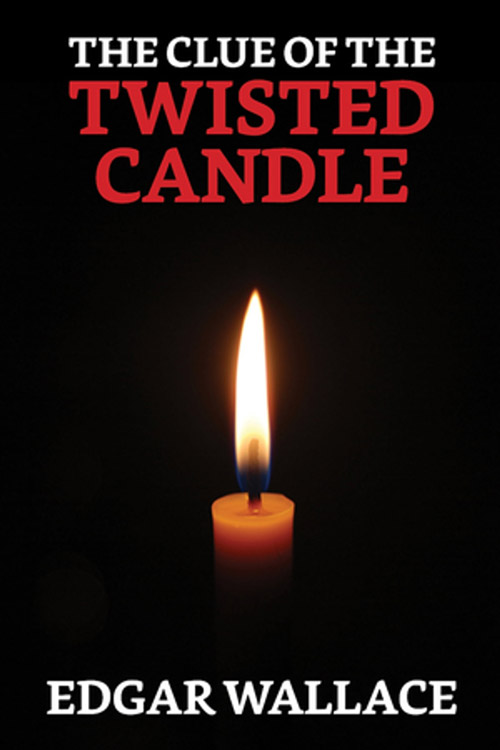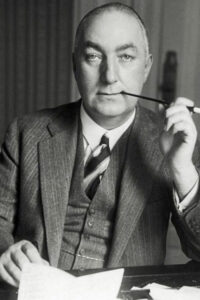
The Clue of the Twisted Candles
The Priory drawing room was a low-ceilinged, rambling apartment, “all old print and chrysanthemums,” to use Lexman’s description. Cosy armchairs, a grand piano, an almost medieval open grate faced with dull-green tiles, a well-worn but cheerful carpet, and two enormous silver candelabras were the principal features that attracted the newcomer. There was a harmony, a quiet order, and a soothing quality in this room, making it a haven of rest for a literary man with jagged nerves.
Two big bronze bowls were filled with early violets, another blazed like a pale sun with primroses, and the early woodland flowers filled the room with a faint fragrance. A man rose to his feet as John Lexman entered and crossed the room with an easy carriage. He was a man possessed of singular beauty of face and figure. Half a head taller than the author, he carried himself with such a grace as to conceal his height.
“I missed you in town,” he said, “so I thought I’d run down on the off chance of seeing you.” He spoke in the well-modulated tone of one who had long been acquainted with England’s public schools and universities. There was no trace of any foreign accent, yet Remington Kara was Greek-born and partly educated in the more turbulent area of Albania.
Read or download Book
Edgar Wallace
Richard Horatio Edgar Wallace (1 April 1875 – 10 February 1932) was a British writer of sensational detective, gangster, adventure and sci-fi novels, plays and stories.
Biography.
Born into poverty as an illegitimate London child, Wallace left school at the age of 12. He joined the army at age 21 and was a war correspondent during the Second Boer War for Reuters and the Daily Mail. Struggling with debt, he left South Africa, returned to London, and began writing thrillers to raise income, publishing books including The Four Just Men (1905).
Drawing on his time as a reporter in the Congo, covering the Belgian atrocities, Wallace serialized short stories in magazines such as The Windsor Magazine and later published collections such as Sanders of the River (1911). He signed with Hodder and Stoughton in 1921 and became an internationally recognized author. After an unsuccessful bid to stand as Liberal MP for Blackpool (as one of David Lloyd George’s Independent Liberals) in the 1931 general election, Wallace moved to Hollywood, where he worked as a scriptwriter for RKO. He died suddenly from undiagnosed diabetes during the initial drafting of King Kong (1933). Wallace was such a prolific writer that one of his publishers claimed he wrote a quarter of all books in England. As well as journalism, Wallace wrote screenplays, poetry, historical non-fiction, 18 stage plays, 957 short stories, and over 170 novels, 12 in 1929 alone.
More than 160 films have been made of Wallace’s work. In addition to his work on King Kong, he is remembered as a writer of “The Colonial Imagination”, for the J. G. Reeder detective stories, and for The Green Archer serial. He sold over 50 million copies of his combined works in various editions and The Economist in 1997 described him as “one of the most prolific thriller writers of [the 20th] century”, although the great majority of his books are out of print in the UK, but are still read in Germany. A 50-minute German TV documentary was made in 1963 called The Edgar Wallace Story featured his son Bryan Edgar Wallace.






